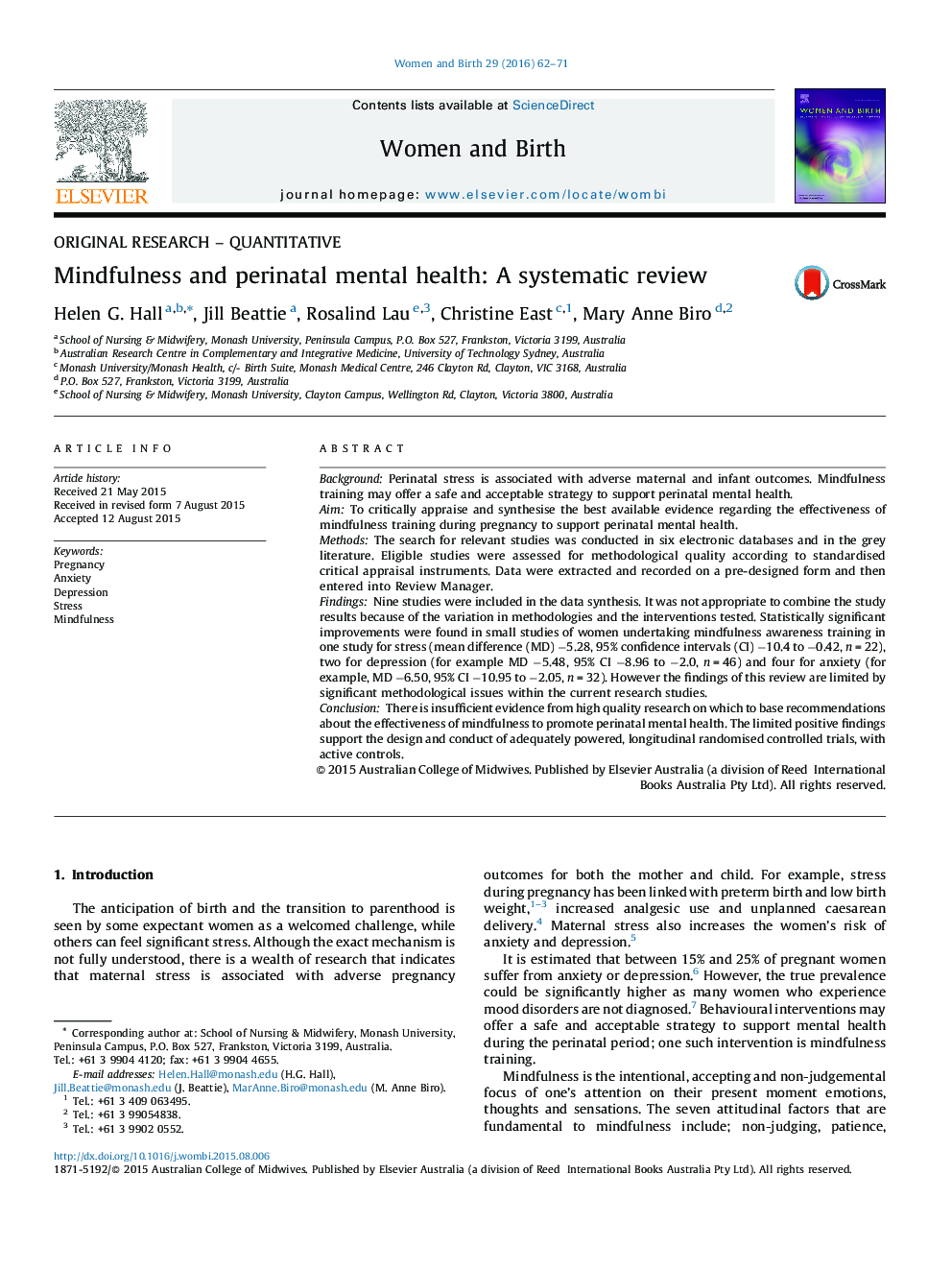| Article ID | Journal | Published Year | Pages | File Type |
|---|---|---|---|---|
| 2636441 | Women and Birth | 2016 | 10 Pages |
BackgroundPerinatal stress is associated with adverse maternal and infant outcomes. Mindfulness training may offer a safe and acceptable strategy to support perinatal mental health.AimTo critically appraise and synthesise the best available evidence regarding the effectiveness of mindfulness training during pregnancy to support perinatal mental health.MethodsThe search for relevant studies was conducted in six electronic databases and in the grey literature. Eligible studies were assessed for methodological quality according to standardised critical appraisal instruments. Data were extracted and recorded on a pre-designed form and then entered into Review Manager.FindingsNine studies were included in the data synthesis. It was not appropriate to combine the study results because of the variation in methodologies and the interventions tested. Statistically significant improvements were found in small studies of women undertaking mindfulness awareness training in one study for stress (mean difference (MD) −5.28, 95% confidence intervals (CI) −10.4 to −0.42, n = 22), two for depression (for example MD −5.48, 95% CI −8.96 to −2.0, n = 46) and four for anxiety (for example, MD −6.50, 95% CI −10.95 to −2.05, n = 32). However the findings of this review are limited by significant methodological issues within the current research studies.ConclusionThere is insufficient evidence from high quality research on which to base recommendations about the effectiveness of mindfulness to promote perinatal mental health. The limited positive findings support the design and conduct of adequately powered, longitudinal randomised controlled trials, with active controls.
